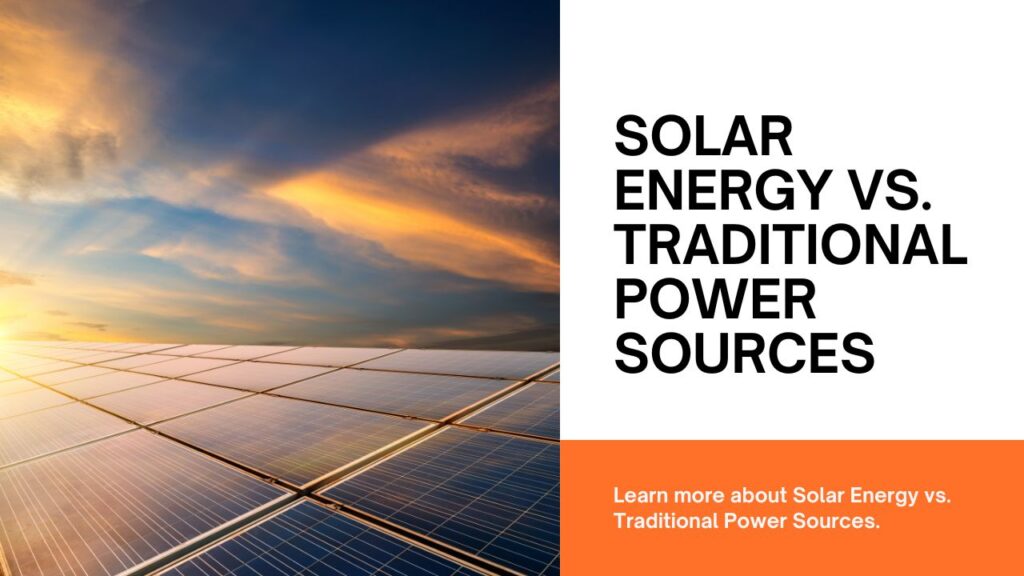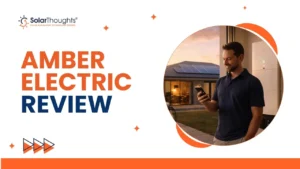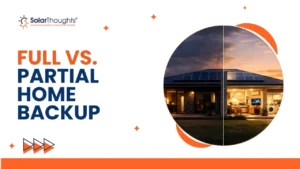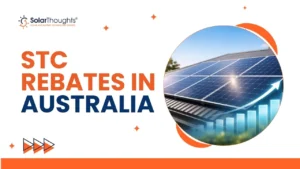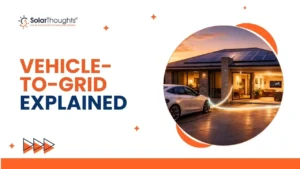Introduction
When considering powering your home or business, two primary options exist – tapping into solar energy or opting for conventional power from the electric grid. But how exactly does solar energy stack up against traditional power sources like coal, natural gas, and nuclear power? In this guide, we compare the pros and cons of solar power versus conventional electricity generation on key categories from cost-effectiveness to environmental impact.
Table of Contents
Toggle1.Cost Comparison
One of the biggest considerations when deciding on an electricity source is cost and billing impact over the long run.
Solar Power Cost Factors
Adopting solar energy requires hefty upfront investment into purchasing and installing a PV system. However, solar panel electricity then costs nothing to generate and drastically slashes energy bills thanks to free sunlight. Tax credits and solar incentives can offset 30%+ of system costs.
Conventional Power Cost Tradeoffs
Grid electricity appears “cheaper” initially because no system investment is required. However, utilities charge recurring delivery fees and variable kilowatt-hour rates. These electricity costs inevitably rise over time given fossil fuel supply constraints.
Over a 10-25 year timeframe, factoring in lifetime costs and projected energy inflation reveals solar power as the clear long-term winner for cost-savings.
2.Reliability & Uptime
Any power source must provide consistent, dependable energy on demand. Here is how solar and conventional generation stack up on reliability:
Solar Reliability Perks
Once installed, solar panel systems supply electricity indefinitely from permanent sunlight exposure. While intermittent clouds can briefly limit output, systems continue producing for 20-30+ years largely unaffected by external supply constraints thanks to endless solar fuel accessibility.
Grid Power Reliability Issues
Traditional utilities rely on finite fossil fuel supplies vulnerable to price fluctuations, shortages, and distribution challenges. Grid infrastructure also remains susceptible to damage from extreme weather, cyber attacks and wear-and-tear failures. These risks threaten reliability.
With indefinite free access to the sun’s energy, solar power simply offers unparalleled generation reliability and uptime versus uncertain grid infrastructure. Supplementary batteries mitigate solar intermittency as well.
3.Ecological Impact
Green-conscious homeowners often-prioritize sustainably powering their households with minimal environmental harm.
Solar Energy Environmental Pros
Generating electricity directly from sunlight produces zero emissions, waste products, pollution, or resource depletion. Solar energy systems therefore provide clean renewable power completely in harmony with the environment. Their lifecycles also minimize ecological impacts.
Grid Power Environmental Cons
Burning fossil fuels like coal and natural gas to produce conventional electricity generates substantial air and water pollution along with greenhouse gases that accelerate climate change. Nuclear plants also carry waste disposal risks. While improving, legacy utility networks still predominantly utilize dirty unsustainable fuels that threaten local ecosystems and the global climate.
For home and business owners prioritizing ecological stewardship, installing solar panels serves as a direct, impactful way to minimize environmental footprints from your household’s power consumption.
4.Energy Independence
Both solar power and conventional electricity offer differing degrees of energy self-sufficiency and independence from broader distribution grids.
Solar Fosters Independence
Installing solar panels with battery backup allows homeowners to generate, store and consume their own renewable electricity to meet needs during grid outages. While still typically tied into the grid, properly sized solar systems with storage provide substantial energy autonomy.
Grid Dependence Issues
Conventional utility customers suffer complete reliance on external electricity distribution from centralized fossil fuel plants. Grid infrastructure damage easily causes local service interruptions in extreme weather when reliable power matters most.
For homeowners wanting to take greater control over their energy future in light of distribution grid uncertainty from aging infrastructure and climate change vulnerabilities, solar energy independence holds increasing appeal over conventional grid dependence.
FAQ
Which power source is more affordable long-term?
Factoring in lifetime costs over 20+ years, residential solar power generally offers greater cost-savings versus paying recurring monthly utility bills at unpredictable rates to keep buying fossil fuel-generated grid electricity.
Which electricity source is more reliable?
Thanks to permanent free access to sunlight, solar PV systems provide highly dependable electricity for 25+ years without fear of resource shortages or delivery interruptions (outside of rare localized equipment malfunctions). This gives solar power better future reliability than fossil-fueled grid infrastructure growing increasingly costly to maintain as resources deplete.
What energy source is more eco-friendly?
With zero emissions or waste products, solar energy remains completely clean and sustainable. This gives it major environmental advantages over fossil fuel power plants emitting greenhouse gases and other toxic pollutants into the atmosphere when generating electricity.
Conclusion
While no electricity solution is perfect across all factors, analyzing the pros and cons makes a compelling case for solar power over conventional energy in residential applications based on cost-competitiveness, reliability, environmental stewardship, and long-term sustainability. Only growing concerns over grid dependence and fossil fuel depletion strengthen the modern rationale behind “going solar”. Homeowners wanting to leverage free abundant sunlight to generate their own emissions-free electricity find solar delivering on these priorities more convincingly than traditional utility suppliers relying predominantly on dirty finite fuel sources over aging distribution infrastructure.
SolarThoughts: Where efficiency and elegance unite to power your home sustainably.

